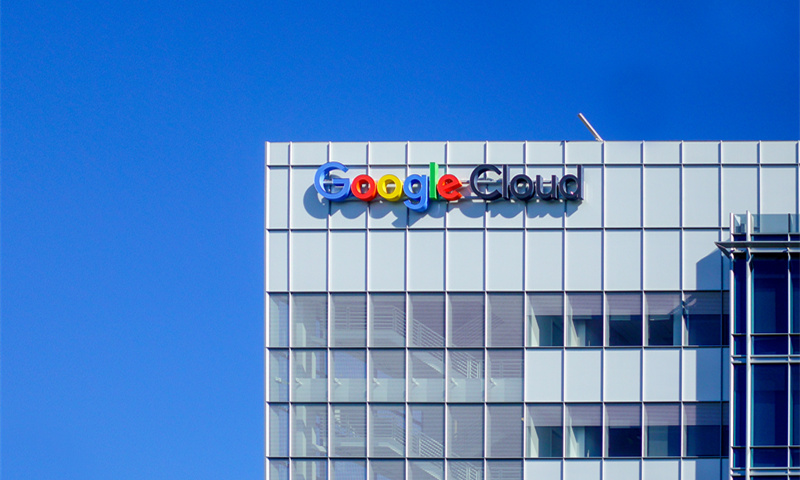Silicon Valley firms to keep offices largely closed
Tech companies have their own safety considerations despite easing of virus ban

Google Cloud at the Silicon Valley on July 23, 2020 Photo: VCG
Several of San Francisco Bay Area's largest technology companies including Twitter Inc and Google plan to keep their offices largely closed for months more despite the government allowing them on Tuesday to be opened in a limited capacity.
Taking into account declining coronavirus infections, San Francisco and Santa Clara counties eased guidelines that had kept most office buildings closed for the last year except to crucial security and support staff.
Starting Wednesday, companies are allowed to open up their offices for up to a quarter of their capacity.
"San Francisco is going to come alive," Mayor London Breed told reporters. "When we start to reopen, more and more people are going to want to return to work and want to be around other folks."
But Silicon Valley companies that committed last year to allowing workers to stay home until this summer or indefinitely said that they stood by their timelines.
They cited their own analyses of public health data, other safety considerations and workers' preferences. Adoption of vaccines, which in California are accessible to only the most vulnerable populations, is also a factor but a smaller one.
Networking gear maker Cisco Systems Inc and file-storage service Dropbox Inc said their mandatory work from home policies would remain effect until June, while Box Inc said its reopening is still scheduled for September.
Pinterest Inc is not eyeing a significant reopening until at least August, Alphabet Inc's Google until September and DocuSign Inc not before October.
Twitter, Adobe Inc, PayPal Holdings Inc, Twilio Inc, Yelp Inc and Zoom Video Communications Inc also will stay closed despite what Breed and other local government officials described as a move to the "orange tier" from the "red tier" of California lockdown restrictions.
Breed's spokesman Jeff Cretan said San Francisco officials expect smaller and mid-sized companies to be the first to return.
'Hiring advantage'
Among the few companies aiming to take advantage of the easing were SAP SE, which said it is strongly considering partially reopening its Bay Area offices within weeks, and Slack Technologies, which is weighing a date to invite back some workers.
San Francisco ecommerce software startup Fast will open its doors - and windows for safety - to up to 25 percent of its 56 Bay Area employees on Wednesday, spokesman Jason Alderman said. He said the company expects to start getting job applications from people forced to work remotely by their current employers.
"Companies like Fast that are allowing people to come into the office if they want to is going to be a hiring advantage," he said.
A survey late last year of 9,000 knowledge workers commissioned by workplace chat software company Slack found 20 percent want to work remotely, 17 percent in the office and 63 percent a mix of the two.
Facebook Inc, whose offices otherwise remain closed globally until July 2, said this month it is opening 10 percent of seats in Seattle area offices to help workers struggling at home. It did not have similar news to share about its San Francisco offices.
Microsoft Corp, which announced plans on Monday to partially reopen its Redmond, Washington, headquarters next week, did not immediately comment on San Francisco locations.
IBM declined to discuss Bay Area plans. But several senior executives at its New York headquarters have begun working from their offices with doors closed.
And Google will invest $7 billion in offices and data centers across the US this year, down from the $10 billion last year, and create 10,000 new full-time jobs as it takes on a pandemic-driven surge in internet traffic.
The latest investment includes expansion plans for data centers in Nebraska, South Carolina and Texas, and its offices in Atlanta, D.C., Washington, Chicago and New York.
Google is also spending $1 billion in its home state of California. The move comes at a time when many companies are exiting Silicon Valley after the pandemic triggered a broader shift to remote work, making companies reconsider the state's higher operational costs and hefty taxes.


